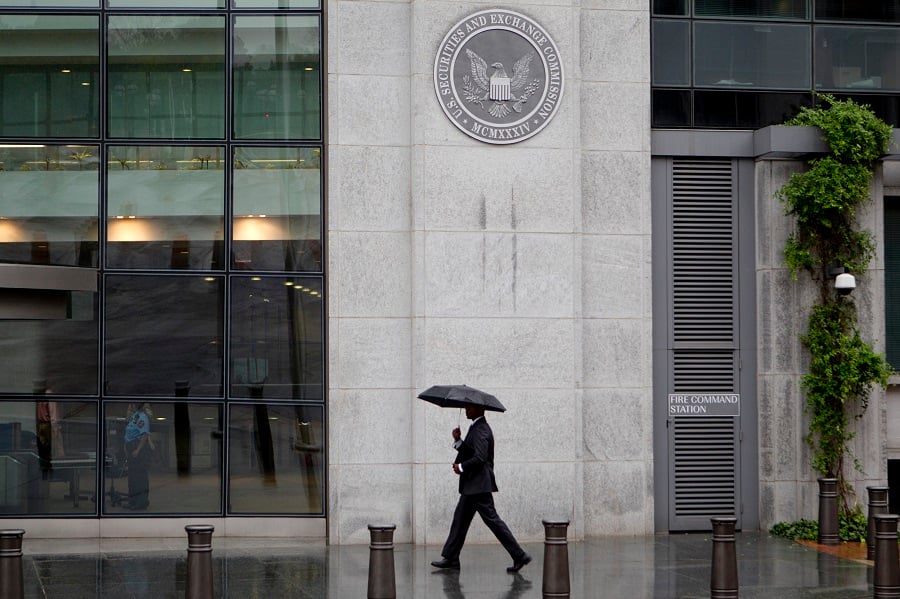

The SEC’s deep dive into how financial firms are using messaging apps and other forms of electronic communication to conduct business is presenting one of the biggest compliance challenges to confront the investment advice sector.
For more than a year, the Securities and Exchange Commission has been cracking down on big banks for not monitoring and preserving their employees’ messages on WhatsApp and other unauthorized platforms.
The agency levied $1.1 billion in fines against Citigroup Inc., Bank of America Corp. and Goldman Sachs Group Inc. in December. That action followed a $125 million penalty against J.P. Morgan Chase in December 2021.
A document request for an SEC investigation into text messaging shows how far the probe goes in trying to determine the extent of record-keeping lapses. The four-page query, dated last November, was recently obtained by InvestmentNews.
The SEC asks the firm to produce policies and procedures related to allowing or barring text messages and retaining communications related to brokerage or advisory services. The agency then seeks documents that show who was responsible for overseeing the messages, how monitoring and training were conducted and how violations were detected.
Another section of the request contains a list of 12 questions related to senior executives or people who directly reported to them who received texts.
“That’s a lengthy request,” said Maxwell Baker, an associate attorney at Vigilant, a compliance consulting firm. “Think about the time it’s going to take to sit down with each of your employees and go through this list. This opens the industry’s eyes on what the SEC is likely to dig into if they start asking questions about your documentation of your electronic communications policies in general.”
An SEC spokesperson declined to comment on the document request.
Another glimpse of the SEC’s probe into so-called off-channel communications was provided at a recent Investment Adviser Association conference in Washington. On a panel about SEC examination trends, one of the slides in a presentation by Carlo di Florio, a former SEC exams director, outlined a recent document request in an SEC probe of investment advisors’ electronic communication supervision.
The request asks the advisor to outline steps taken to monitor, review and retain communication conduct through email, texts, messaging apps, instant messages, Bloomberg messaging and private messaging on social media sites.
The SEC also asks the advisory firm to address whether personnel can use personal devices for firm business, the steps it takes to approve personal devices and how it ensures staff only use approved means of electronic communications to conduct business.
“As they’re learning more about the programs, they’re diving deeper and they’re asking for more information,” di Florio, a partner and global advisory leader at the compliance consultant ACA Group, said on the sidelines of the IAA conference.
The SEC is concerned that financial firms are failing to monitor and preserve off-channel communications, a deficiency that could hamstring the agency’s examination and enforcement efforts.
“We think record-keeping obligations are vital to the integrity of the markets,” Corey Schuster, co-chief of the asset management unit of the SEC’s Enforcement Division, said at the IAA conference.
The agency has found firms aren’t putting into practice the language in compliance programs related to electronic communications.
“While they did have policies and procedures on them, it was quite clear they were not being followed by many in the organization,” Schuster said.
The SEC has made electronic communications an examination priority. It also has indicated it is probing Wells Fargo, LPL and Edward Jones on how the firms’ registered representatives are using messaging apps.
“This is a great opportunity for chief compliance officers to check and align their monitoring, surveillance and archiving practices with their policies and procedures,” di Florio said. “Be prepared for a knock at the door” by the SEC.
Brokerages and advisory firms also will have to adapt policies and procedures to a business environment — and society in general — where everyone is constantly looking at their phones.
Advisors rarely carry separate phones for personal and business use, Baker said. When they’re on their phone, they’re often texting.
“There’s messaging that’s falling outside the email channels,” Baker said. “It’s not going to be enough to archive email. That means exploring beyond a policy that just says email only. It’s finding a way to separate your personal communications from your business communications.”
That could be a heavy lift for smaller advisors. But they also will have to determine how they can corral their messaging.
“Firms do need to assess whether they have an issue similar to those that were created at the larger firms and how they can best address those issues and comply,” Schuster said.

Carson is expanding one of its relationships in Florida while Lido Advisors adds an $870 million practice in Silicon Valley.

The approval of the pay proposal, which handsomely compensates its CEO and president, bolsters claims that big payouts are a must in the war to retain leadership.

Integrated Partners is adding a husband-wife tandem to its network in Missouri as Kestra onboards a father-son advisor duo from UBS.

Futures indicate stocks will build on Tuesday's rally.

Cost of living still tops concerns about negative impacts on personal finances
RIAs face rising regulatory pressure in 2025. Forward-looking firms are responding with embedded technology, not more paperwork.
As inheritances are set to reshape client portfolios and next-gen heirs demand digital-first experiences, firms are retooling their wealth tech stacks and succession models in real time.
